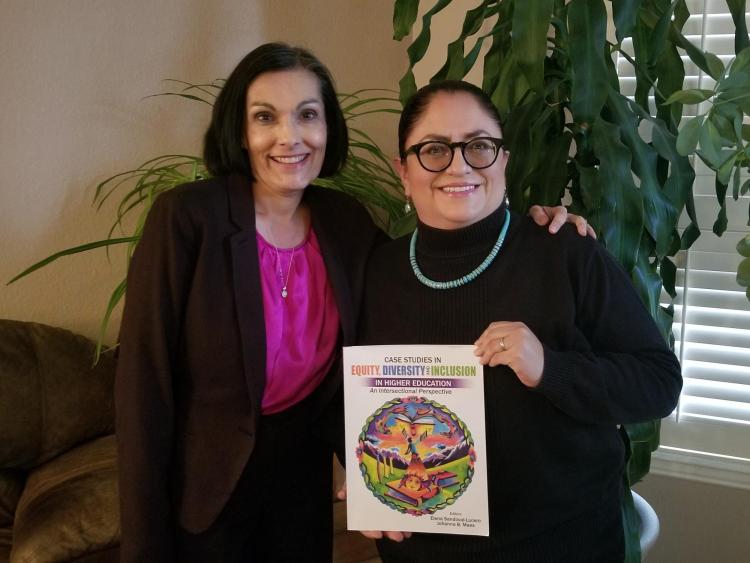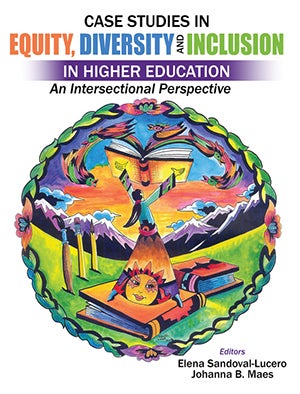
Plus two upcoming opportunities to engage with the editors and authors behind this powerful new book
Friends and colleagues, Johanna Maes and Elena Sandoval-Lucero, found they were often looking for a tool to use in their classes that could aid in grappling with the provocative and often painful situations that affect marginalized people in higher education. When they did not find the resource they were looking for, they decide to create one, resulting in their co-edited and newly published book, “Case Studies in Equity, Diversity & Inclusion in Higher Education: An Intersectional Perspective.”
Maes and Sandoval-Lucero have been friends and colleagues since the early 2000s when they worked together in student affairs at Metropolitan State University of Denver. Today, Maes is the director Master’s in Higher Education program and Senior Instructor of the Multicultural Leadership Scholars in the CU Boulder School of Education and Sandoval-Lucero is the vice president of Front Range Community College’s Boulder County Campus.
Together, the book’s co-editors and contributors hope this book will serve as a resource for higher education professionals — faculty, staff and administrators — and students studying leadership, higher education, student affairs, ethnic studies and more.
Published by Kendall Hunt Publishing Company, the book’s goal is to “connect equity, diversity, inclusion and social justice theories to practice and allow readers to actively engage when faced with diverse issues within a variety of contexts.”
Moving beyond academic buzzwords, Maes and Sandoval-Lucero insisted their project take an authentic, intersectional approach to diversity and inclusion. The book’s chapters and cases explore the intersections of race, ethnicity, gender, class, sexual orientation, immigration status and position power dynamics.
“Many of our case studies are real while some are somewhat altered—to protect the identities of folks involved—but all were written from a place of equity and power,” Maes said.
The editors’ call for case studies resulted in chapter proposals from across the nation and throughout experiences at community colleges and four-year institutions. To Maes’ delight, several of her colleagues in the CU Boulder School of Education and CU Engage contributed as chapter authors, including Charla Agnolotti, Ashmi Desai, Karen Ramirez and Sabrina Sideris plus a fascinating chapter by Annalisa Ugarte, a doctoral student in the Chemistry Department.
“It was especially meaningful to me to have so many of my colleagues from the CU Boulder School of Education who submitted brilliantly written case studies to be included in this work,” she said. “It clearly validated the tremendous talent we have within our own walls.”
Maes said recording these experiences was understandably difficult for many contributors, and the editors were there to support them and help tell their stories.
“It became a cathartic process for them to finally write their pieces—to release this tension of sorts—which we hope also became a process of healing for them,” she said. “Elena and I were honored and humbled to be part of this journey with these authors.”

